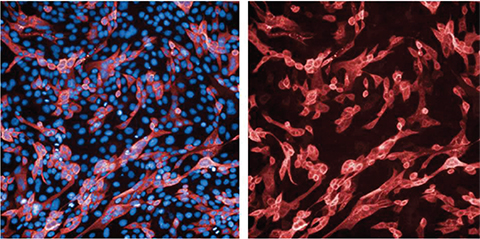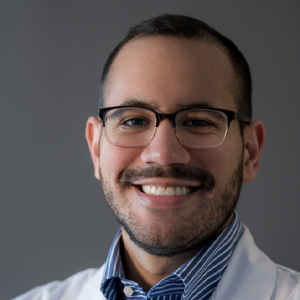SARS-CoV-2 variants remodel cellular landscapes
Viruses are obligate intracellular parasites, which means they rely on the cellular machinery within their hosts to replicate and assemble new virus particles. To achieve this, they have evolved sophisticated ways to hijack and alter cells while simultaneously overcoming an arsenal of immune defenses activated by viral infection.
Christian Münch, Sandra Ciesek and a team of scientists at Goethe University in Germany study how viruses can rewire their host cells. “We are keen on understanding cellular signaling responses to stress stimuli, such as viral infection,” Münch said.

Coronaviruses are a genus that infects many species, especially mammals and birds. Experts believe severe acute respiratory syndrome coronavirus 2, or SARS-CoV-2, crossed the species barrier and entered the human population to cause the COVID-19 pandemic. Since its detection in Wuhan, China, SARS-CoV-2 has mutated numerous times, resulting in the emergence of multiple variants. These variants may behave distinctly from one another, which can lead to reduced efficacy of antiviral treatments in patients.
The appearance of SARS-CoV-2 variants “definitely tickled our curiosity to examine host cellular antiviral responses,” Münch said. The team’s recent study of these variants was published in the journal Molecular & Cellular Proteomics.
Led by Melinda Metzler and Rebecca Tharyan, the researchers began this investigation by infecting cells from lung tissue, the primary target of the virus in humans. They inoculated these lung cells with three viruses: the ancestral SARS-CoV-2 strain, the delta variant, and the omicron variant. The team discovered that the omicron variant replicated remarkably slower within these lung cells than the delta variant or ancestral strain. This was the first experimental indication of a unique cellular response to omicron infection.
Inside every cell are millions of proteins collectively known as the proteome. The scientists next sought to uncover what changes occurred in the proteomes of both the lung cell and the virus during infection.
“To study these time-resolved processes, we developed novel proteomics methods and set up a platform for cellular proteome profiles upon infection,” Tharyan said.
The researchers extracted the proteins from samples and then used mass spectrometry to identify and measure differences in protein quantities among cells infected with the three SARS-CoV-2 strains.
The proteomic analyses showed major cellular changes in all three infected samples, but cells infected by the omicron variant consistently exhibited alterations absent from the other strains. They detected the viral proteome to be significantly reduced in omicron-infected cells as well. Of particular interest was that the researchers also saw striking immunological delays in how cells responded to omicron.
Interferon, or IFN, proteins are a first line of defense against viruses. Omicron-infected cells took much longer to induce IFN proteins than the ancestral SARS-CoV-2 strain or delta variant, suggesting that the omicron virus was able to impede immune activation in these lung cells.
“It was intriguing to unravel such individuality in cellular responses at both proteome and molecular level,” Tharyan said.
Medical records indicate that compared to other variants, omicron infection results in milder cases of COVID-19. Despite its diminished disease burden, the omicron variant is significantly more contagious. Considering these facts, along with their findings on the lagging immune response to this particular variant, Tharyan and her colleagues concluded that in the case of omicron, “slow and steady wins the race.”
Enjoy reading ASBMB Today?
Become a member to receive the print edition four times a year and the digital edition monthly.
Learn moreGet the latest from ASBMB Today
Enter your email address, and we’ll send you a weekly email with recent articles, interviews and more.
Latest in Science
Science highlights or most popular articles

ASBMB announces 2026 JBC/Tabor awardees
The seven awardees are first authors of outstanding papers published in 2025 in the Journal of Biological Chemistry.

Missing lipid shrinks heart and lowers exercise capacity
Researchers uncovered the essential role of PLAAT1 in maintaining heart cardiolipin, mitochondrial function and energy metabolism, linking this enzyme to exercise capacity and potential cardiovascular disease pathways.

Decoding how bacteria flip host’s molecular switches
Kim Orth will receive the Earl and Thressa Stadtman Distinguished Scientists Award at the ASBMB Annual Meeting, March 7–10, just outside of Washington, D.C.

Defining JNKs: Targets for drug discovery
Roger Davis will receive the Bert and Natalie Vallee Award in Biomedical Science at the ASBMB Annual Meeting, March 7–10, just outside of Washington, D.C.

Building better tools to decipher the lipidome
Chemical engineer–turned–biophysicist Matthew Mitsche uses curiosity, coding and creativity to tackle lipid biology, uncovering PNPLA3’s role in fatty liver disease and advancing mass spectrometry tools for studying complex lipid systems.

Redefining lipid biology from droplets to ferroptosis
James Olzmann will receive the ASBMB Avanti Award in Lipids at the ASBMB Annual Meeting, March 7–10, just outside of Washington, D.C.

